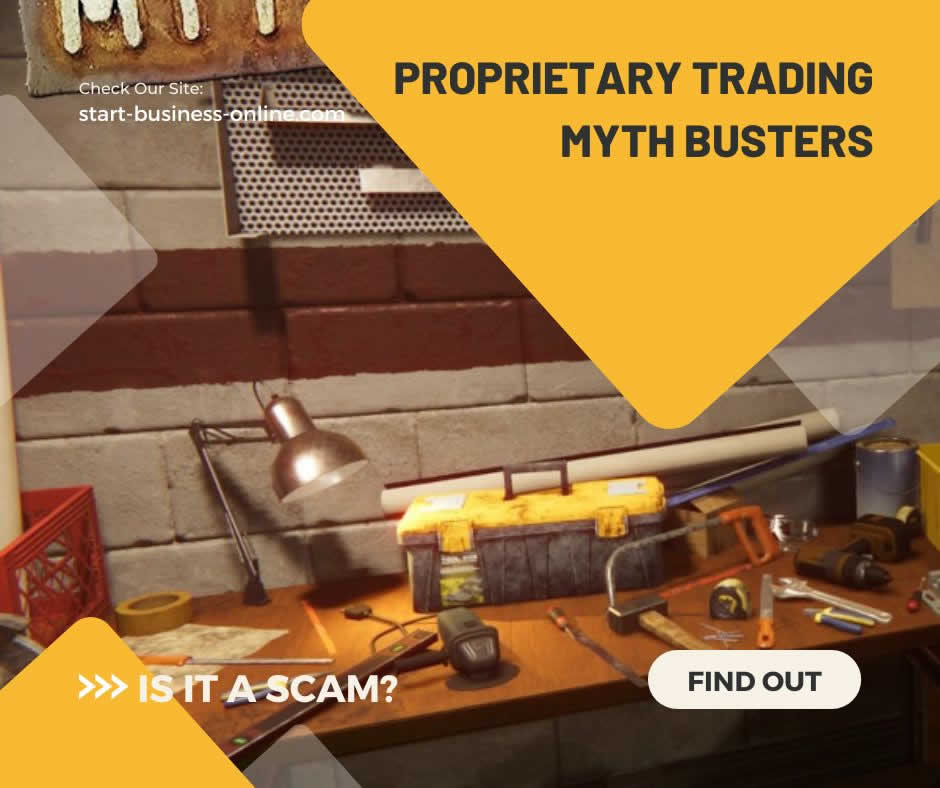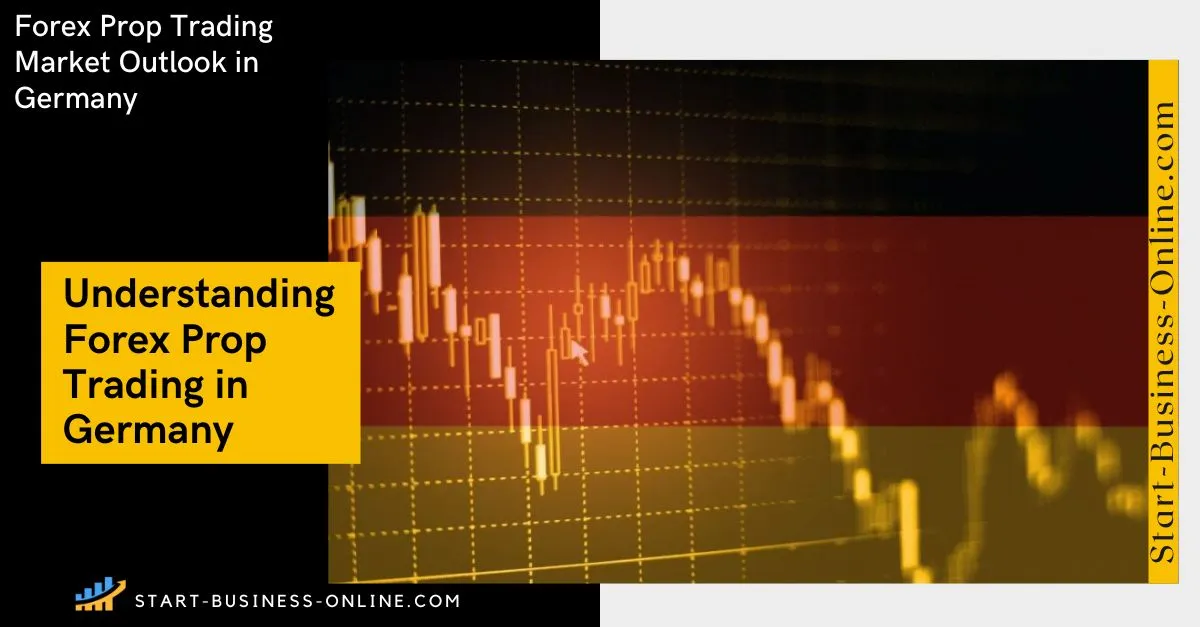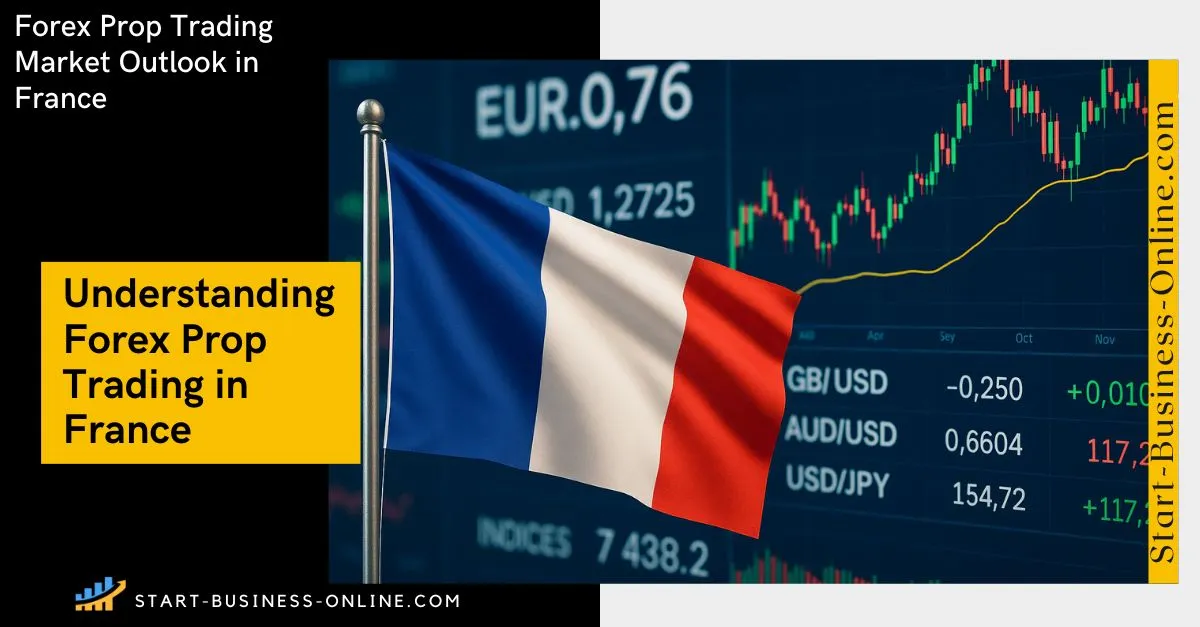Prop firms are the marmite of the trading world today. Traders see the evaluation process or funding challenges required by certain firms as impossibly difficult and not worth the sign-up fee. Many others see prop firms as a career path and point out the vast leverage, training courses, and structured environment as beneficial to independent traders. What exactly is proprietary trading? Proprietary Trading 101 is your guide to prop firms: the highs, lows, and everything in between.
WHAT ARE PROP FIRMS?
Proprietary Trading Firms or “prop firms” are seeing rampant growth among beginner and seasoned traders alike. Firms like FTMO, OspreyFX, and Earn2Trade are just some of the big names of prop firms funding traders – with some platforms offering leverage of up to $2.5 million. Each proprietary trading site will have its own set of entry requirements, trading rules, and funding on offer, but the basic definition is this:
A prop firm is a company that offers the use of its capital to traders who pass their internal evaluation. Traders who can demonstrate their ability to meet profit goals and comply with risk management will pass the evaluation stage and proceed to become a funded trader. The trader retains the majority of any profits earned and the prop firm assumes the risk of lost capital.
Prop firms such as the above are not to be mistaken for depositary prop firms. Also known as broker-dealers or “first-loss” firms, these platforms charge traders for accessing trading software, and training courses, and often those seeking leverage from the platform need to put up a risk deposit. Moreover, and most importantly, depositary prop firms let the traders assume the risk of any dealt leverage.
Nor are prop firms with internal evaluations or “funding challenges” to be confused with traditional prop firms. In the old-fashioned sense, a prop firm was a company that would headhunt traders to join their firm – largely in person at a physical location. The traders would be initiated into the brokerage in an employer-employee relationship. In return for a base salary and training, apprentice traders would have to work at a desk on a trading floor and meet performance metrics such as profit targets and other KPIs.
To clarify, a prop firm that scouts for profitable traders to join their program, and exchanges access to high leverage in return for a share of the profits, tends to have the following characteristics:
- Evaluation fee
- Virtual trading desks
- Access to retail trading software
- Mentorship
- Risk accountability
The Best Prop Trading Firms in 2025
Rating breakdown
Things we liked:
Exclusive Discount Code (20% Off Exclusive Offer)Unlimited time for completion
Real Funding and Daily Payouts
Things we didn't like:
High challenge difficultyRating breakdown
Things we liked:
Exclusive Discount Code (10% Off Exclusive Offer)Unlimited time for completion
Real Funding and Daily Payouts
Things we didn't like:
Futures onlyNo free retry
Rating breakdown
Things we liked:
Up to 100% Profit SplitUnlimited Number of Trading Days
Fast Payouts
Things we didn't like:
10% Max Loss Limit on Accounts$10 Withdrawal Processing Fee
No swap free accounts
PROPRIETARY TRADING MYTH BUSTERS

Prop trading is a scam
You may have heard of traders stating that prop firms are a scam – they make all their money from failed evaluation fees and only a few percent of traders go on to be funded. This is both true and false. Yes, many traders fail to trade within the risk parameters or meet the profit target. Prop firms vary in the level of restrictions they impose with their evaluations, but most have at least several “golden rules” (drawdown limit, consistency rule) that traders must adhere to.
Prop firms just want your evaluation fee
It should be pointed out, however, that many prop firms offer free retakes to contestants who fail the challenge the first time around. Most include trading dashboards where traders can assess their performance metrics and see exactly where they may have gone wrong. In this vein, the evaluation fee can be seen as an investment in the training and professional growth - even if the trader does not get funded the first time around.
Traders should note, nonetheless, that the largest account sizes or “accelerated programs” of many prop firm sites are not for complete beginners or first-time traders. The higher leverage contained within a $100,000 account will come with a necessarily steeper evaluation fee and traders should aim for the account sizes with profit targets they can realistically hit, oftentimes within a time limit.
Prop firms want you to fail
The above notwithstanding, prop firms are not a scam. Why? It is in their interest for traders to profit – the leverage is given in exchange for a share of the profits. Traders who fail to meet the targets will fail because the prop firm will only fund experienced traders who can earn – both for themselves and the prop firm. The profit split – even if it is just 10% for the prop firm, is enough for them to have a vested interest in their traders’ success.
PROS AND CONS OF PROPRIETARY TRADING
Proprietary Trading is not for everyone. Many traders have launched successful careers that began with a prop firm. While others might advise alternative means of investment, not everyone has a spare $100K lying around, but they might have a stellar strategy that is gathering metaphorical dust outside of the markets it could be turning. If you are a trader with some experience under your professional belt but curious about the opportunity of trading larger account sizes, here are some of the benefits to using a prop firm:
- High leverage: This is the obvious boon but it remains the biggest advantage to trading with a proprietary trading company. For as little as $99, you could begin trading with $10,000 in your account.
- Accelerated programs: There are certain prop firms targeted at more advanced and professional day traders. For a higher fee traders can skip the evaluation process altogether and immediately begin trading a funded, live account and keep a share of the profits earnt.
- Scaling program: Increasingly, prop firms are offering tiered funding in the form of scaling. In other words, traders who pass the evaluation stage and receive funding will then see their account sizes increase (often doubled) every time they hit a profit target.
- Training and mentorship: Another undeniable gain to trading with a prop firm is the chance for experience and professional self-development. Prop firms offer their traders access to educational materials including training courses, one-to-one mentorship, and advanced analytics so that traders can assess their past performances and tweak strategies moving forward.
- Powerful software: The benefit of trading via a third party is the access to their trading software and tools. Many prop firms, including KOT, the 5%ers, and ThorFX offer access to the most popular trading software: MetaTrader4 and MetaTrader5.
- Portfolio diversification: Full-time traders can “dip a toe” (or invest a small amount) into a prop firm challenge without going all in. Broadening your portfolio to include prop trading can hedge your overall investment against the risk of investing too heavily in a single asset or type of trade that is at the mercy of the markets.
Of course, as with any financial investment, there are associated risks and drawbacks with proprietary trading. Many programs have steep evaluation fees or complicated rules that would make passing the challenge and becoming a funded trader difficult or nearly impossible. The “fast-track” option may be a tempting way to sidestep this stage but it comes at a hefty price. City Traders Imperium, for example, offers its traders a direct funded account for a one-time payment - but this could set you back as much as £3,649 for a $70,000 account. Bear in mind too that even the largest account sizes will require you to meet profit targets, the prop firm wants you to trade consistently and successfully – and in return, you will walk away with the bulk of the stake.
PROPRIETARY TRADING – IS IT FOR ME?
Prop trading is not for everyone. If you do not want to risk losing a challenge entry fee that you may not get back, or invest valuable time in trading a funded account that you cannot control, then this type of trading (or trading in general!) may not be for you. If you consider yourself an apt trader capable of following simple trading rules and keeping your risk in check, then prop trading does offer near-instant liquidity with professional development on the way. What is certain is that whichever route you choose you should make informed choices. Prop firms vary widely in terms of the tradeable assets, account sizes and associated fees and rules, and customer support available. Do your research and perform due diligence on whichever prop firm you feel best suits your trading style and offers you optimum chances of success.








